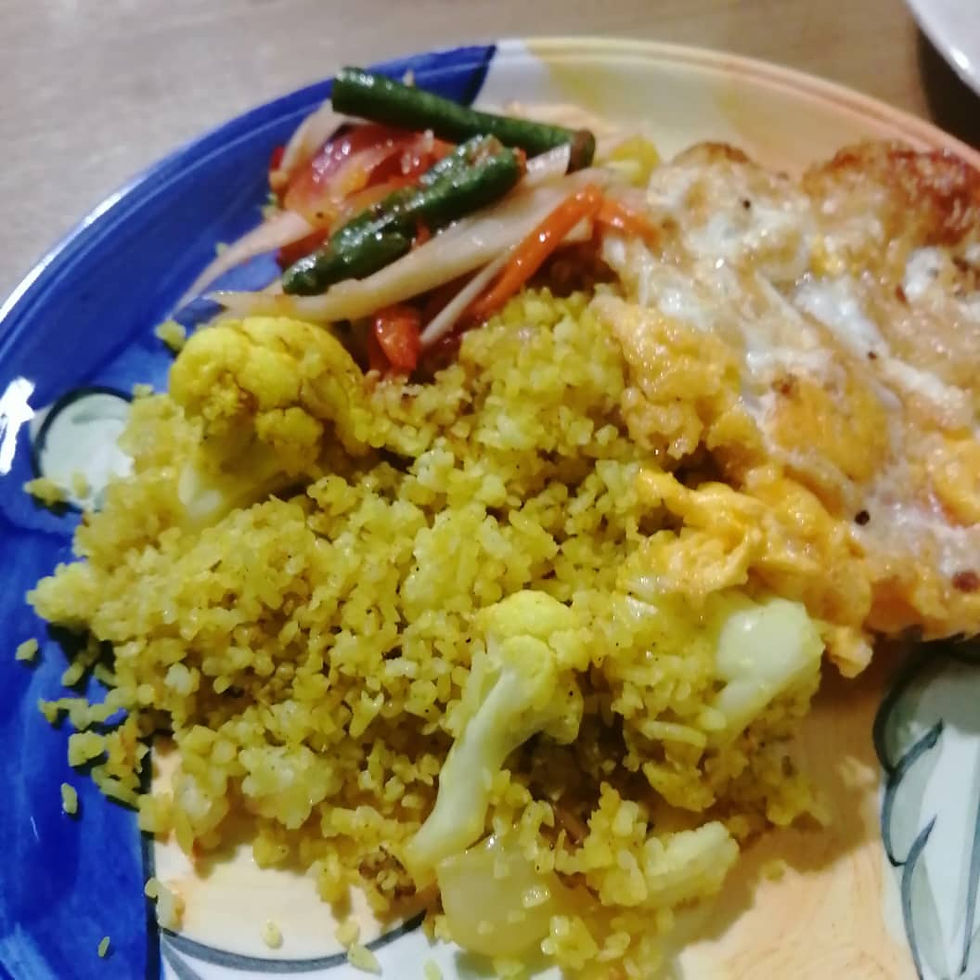Mangetout Momentum in Climate Action - Week 2
- JaeN bnb

- May 16, 2021
- 4 min read
Updated: Jun 8, 2021
Mission
Zero food waste for Hari Raya Aidilfitri
How did the week go?
Readers would probably notice that I only focused on 1 mission this week. This is due to the fact that it was a Hari Raya week whereby my father (who loves to cook Raya meals and is good at it) got excited for the festive season despite us celebrating in the midst of pandemic. My major concern would be his uncontrollable cooking spree, equivalent to a prior uncontrollable ingredient-shopping spree.
Before the pandemic, as we used to have many guests visiting us and having Raya meals at our home, the household led by my father, used to cook large pots of beef rendang, sayur lodeh, kuah kacang (spicy peanut sauce) and chicken curry, fit to feed up to 20 mouths for 3 days. These mouth-watering food can usually last between 3 to 5 days before they grow bad, however because we cooked too much, about 20% of our Raya food ended up in the landfill.
Since the pandemic in 2020, we didn't have anyone coming over, to which my parents cooked less yet still managed to generate food waste due to overestimation of the food amount. Hence with a new resolution for this year, both my mother and I decided to encourage my father to be very calculative and careful in his cooking spree. After all the economy is not doing well in the pandemic and it is more advisable to save money from spending on too much food.
As my father has been doing a nasi beriyani business since last year and is familiar with calculating food portions, he did the calculation before buying any ingredients while planning the Raya meals together - a rare practice until I did this Mangetout Moment challenge. There were times when he was tempted to either cook more or a wider variety of dishes, but with the pressure from my mother who is more environmentally conscious, he ended up cooking small portions of rendang daging, sayur lodeh and kuah kacang which all three of us finished in the span of a week, with no food being thrown away.
Other than planning and doing the math to cook dishes to feed a family of three for a week, these are the approaches my family and I took to manage our Raya food:
Proper storage of leftover dishes - Depending on the ingredients as well as our weekly menu, some dishes were placed in the freezer while the others were kept in the refrigerator.
Proper heating up of leftover dishes - This is a practice I learnt from my mother who is very particular on the process of heating up our meals to avoid them from being spoiled or taste bad on the spot. Some meals need to be left at room temperature before being heated while some are not required to do so.
Consistent inventory check - As the Raya food is prepared for a one-week consumption, it's easy to forget what's left in the fridge and cook another unnecessary meal instead. Therefore, we keep an food inventory checklist - both mentally and physically, to ensure that we don't accidentally cook something new while we still have something to eat.

That being stated as of point 3, I still cook some climate-friendly dishes as I missed having more plants in my diet while my mother could no longer eat spicy food on a daily basis. My father was at least happy with the cauliflower fried rice - a dish I cooked for the first time.
This week's dishes
Braised Shiitake Mushroom with Broccoli

Cauliflower Fried Rice, Fried Egg & Som Tam Vege

What Did I Learn So Far?
Although Raya week was filled with more meat compared to non-meat products, I wouldn't disqualify myself nor my family in our climate action effort as we didn't let any food go to waste. According to WWF and its article 'Fight climate change by preventing food waste', food wastage is equivalent to wasting the energy and water taken up in the process of growing, harvesting, transportation and packaging of food. At the end of the waste management chain, food that goes to the landfill produces methane that fuels climate change. It is stated that about 6%-8% of all human-caused greenhouse gas emissions could be reduced if we stop wasting food. In the US alone, the production of lost or wasted food generates the equivalent of 32.6 million cars’ worth of greenhouse gas emission.

Using the Watch My Waste Food Waste Greenhouse Gas Calculator, I roughly calculated the estimation of reduction in the emissions of CO2-e (kg) through saving about 7kg of food compared to pre-pandemic Raya. It is estimated that 13.3kg CO2-e emission reduced, equivalent to approximately slight more than one-day electricity consumption in a household.
That's a good starting encouragement for my family to play our roles in climate action. I always believe that no human is perfect in being environment-friendly or sustainability-inclined. Nor do I believe that there humans are completely destructive species to the Earth. The image of being completely excellent in sustainability actions gives pressure to the general public who have concerns outside the environment, discouraging them as they get criticized or condemned for every action. This could slow down the change in an individual's mentality to open up to sustainability. This is why I didn't feel discouraged by our Raya meals, rather I chose to be grateful for my family's participation in avoiding food waste - a small action that still contributes to climate action.



Comments